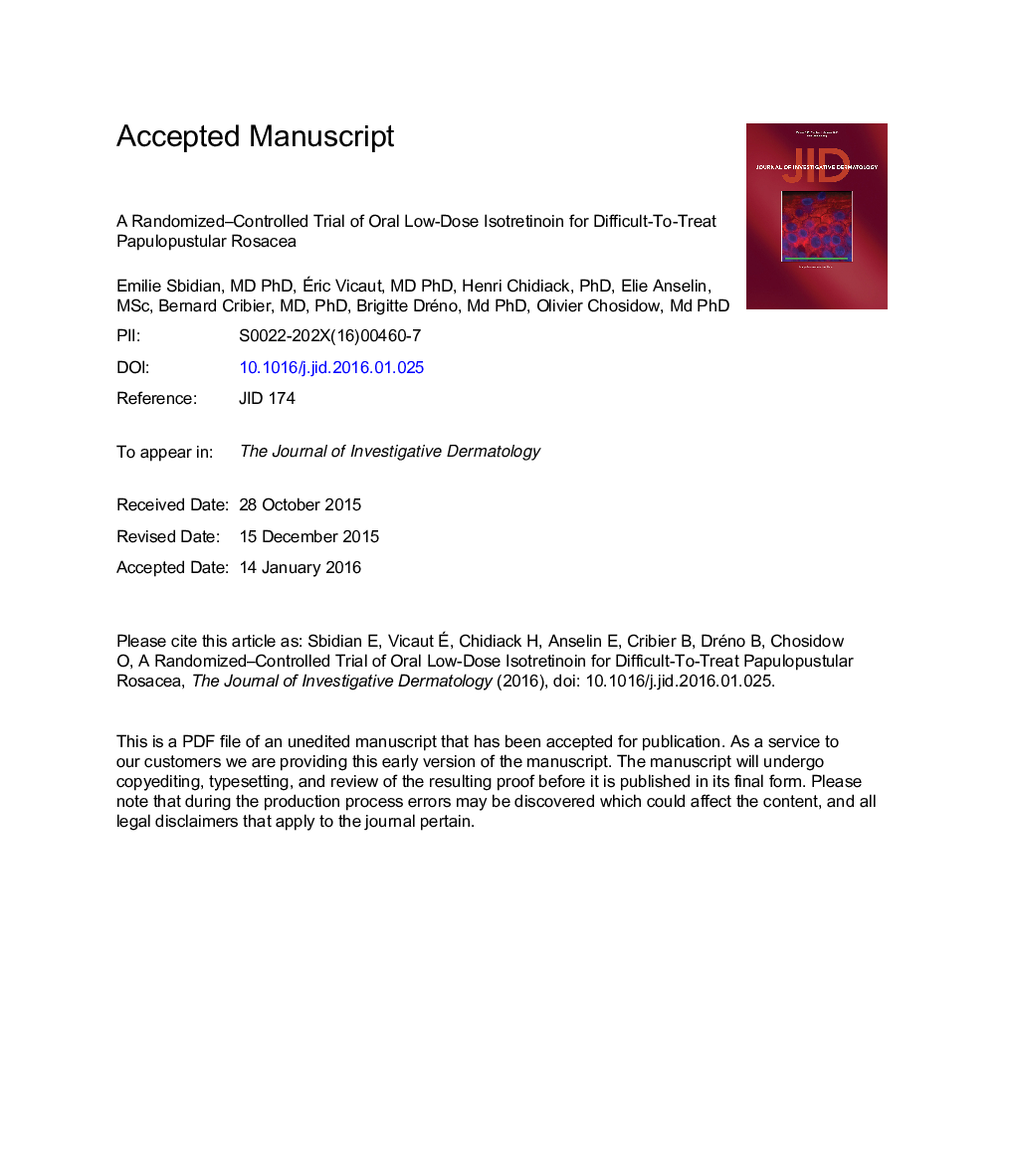| Article ID | Journal | Published Year | Pages | File Type |
|---|---|---|---|---|
| 6074862 | Journal of Investigative Dermatology | 2016 | 25 Pages |
Abstract
Rosacea is a chronic inflammatory facial skin disease with psychosocial impact. Oral cyclines are recommended for moderate-to-severe papulopustular rosacea. Oral isotretinoin was found valuable for difficult-to-treat cases in several reports. This multicenter, double-blind, randomized-placebo-controlled trial compared oral isotretinoin (0.25 mg/kg/day) with placebo (2:1 ratio) for difficult-to-treat papulopustular rosacea. Included patients had at least eight papulopustular lesions. The primary endpoint after the 4-month treatment period was the response rate: at least 90% reduction of the number of papules/pustules compared with baseline. Secondary outcomes included measures on quality of life (Skindex score). Between February 2007 and August 2009, 156 patients were randomized to receive either isotretinoin (n = 108) or placebo (n = 48). In the intention-to-treat population, 57.4% of isotretinoin recipients reached the primary endpoint, compared with 10.4% of those taking the placebo (absolute difference, 47 percentage points; 95% confidence interval, 34.3-59.7; P < 0.0001). To consider therapy successful, 2.1 (95% confidence interval 1.7-2.9) patients had to be treated. Skindex scores had improved significantly more for isotretinoin- than placebo-treated patients. Rosacea relapsed in 27 (58.3%) of 51 patients who accepted 4 months of continued follow-up, with a median of 15 weeks to recurrence. The percentages of patients in each arm who stopped their treatment because of adverse event(s) did not differ. Low-dose isotretinoin was an effective therapeutic option for difficult-to-treat papulopustular rosacea. Further studies should investigate the value of a minimal effective isotretinoin dose to maintain these remissions.
Keywords
Related Topics
Health Sciences
Medicine and Dentistry
Dermatology
Authors
Emilie Sbidian, Ãric Vicaut, Henri Chidiack, Elie Anselin, Bernard Cribier, Brigitte Dréno, Olivier Chosidow,
